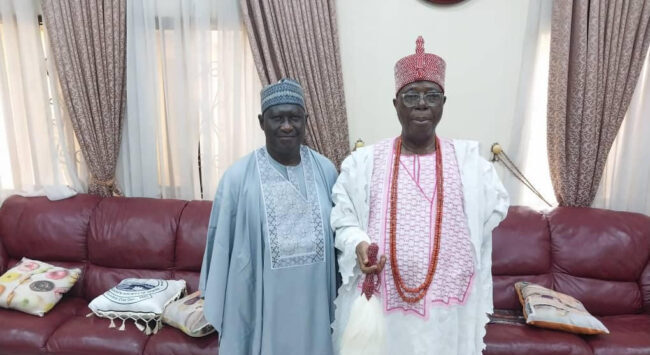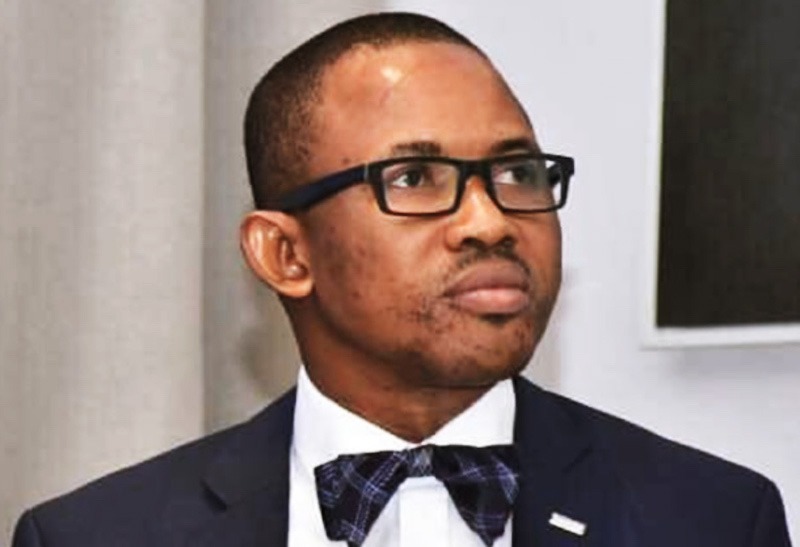Evangelist Junior Nwaubani serves as the global leader of Kingdom Impact Vision International Outreach (KIVI). The missionary recently visited Nigeria and met with journalists. During this engagement, he emphasized to Christians and churches the importance of focusing on soul-winning, teamwork, and unity. Below are some key excerpts from his discussion, as reported by Seyi Sokoya.
WHAT do you think the Nigerian church lacks based on your experiences in missionary work?
We need unity in the body of Christ, and this issue is not unique to Nigeria. Achieving unity will enable us to accomplish more as one body in Christ. When we reach heaven, will God be pleased with us if we refuse to unite with fellow believers? Even if someone next to you is a Christian, it is essential to work together towards the main mandate that Christ has given to every believer: making disciples. Heaven celebrates the winning of souls, for there is joy in heaven over each soul.
Is true unity possible in the body of Christ?
Scripture states that we may be one. Since we all aim for the same heavenly destination, there is no reason we cannot be united. Our unity must focus on following the agenda of Jesus Christ.
What is the main focus of KIVI?
At KIVI, we prioritize evangelism and do not concentrate on doctrinal differences. The Global Christian Network is currently active in 28 countries, and our mission is to spread the message of Jesus Christ worldwide. We engage in evangelism and collaborate with churches that believe in Jesus, the Son of God, and acknowledge the Holy Spirit. However, we do not work with a certain group of churches due to fundamental differences in beliefs.
It is well known that missionary work is highly demanding. How have you managed to sustain your evangelical efforts, particularly in terms of funding?
God has indeed been faithful. We don’t have issues with funds; He has been our great provider. So far, we have enjoyed a smooth journey together, united in purpose, and we never hesitate to help one another. I can pray for another church, support them, and ensure they are growing and thriving. We have witnessed many incredible things.
I have lived in the United Kingdom for over 45 years, and I can tell you that disunity is causing many problems. Currently, in the UK, we see that even churches are being bought by other religions. These are churches that have been established for over 20 years.
When revival hits a place like the United Kingdom, it leads to the propagation of the gospel worldwide, spreading it to Africa as well. It is important to note that the revival that occurred in the UK played a significant role in bringing Christianity to us. One of the first effects of revival is a commitment to share the gospel, even to the point of being willing to die for one’s beliefs.
Despite the lack of a cure for malaria at that time, 80 percent of the people sent to India and Africa were dying. Yet, every three months, new individuals were dispatched to spread the same gospel, fully aware of the risks. Why did they do it? Because they understood that the mission was no longer centered on themselves.
When we realize that Christianity is not pastor-centric, apostle-centric, or bishop-centric, but rather Christ-centric, it makes a significant difference. Our focus needs to return to the main mandate, which is centered on Christ.
Your missionary work began in Bangladesh. What was the experience like?
My journey started when I served as a diplomat for the British High Commission in Bangladesh, where my family accompanied me. During my time there, I witnessed many things, including wealth. However, I realized that Christianity offers something far greater than the pursuit of money. Many people, including Muslims and others, have financial resources. If material wealth is what we consider God’s blessings, then those individuals are perhaps more blessed than we are. I began to question how money could be the main purpose of our calling. I am not called to serve for financial gain.
Even in terms of good health, we all face challenges. My understanding of what it truly means to be a Christian deepened when I arrived in Bangladesh as a diplomat. Although I had many advantages at my disposal, my heart was unsettled, and I felt compelled to reach out to the people. This was a significant risk that could potentially cost me my life. At one point, I decided to move beyond my diplomatic responsibilities to share the gospel, despite the job policies discouraging such actions without permission or a security escort.
However, I felt a prompting from God to step out. Initially, I did what was customary. I organized gatherings for the diplomats in the expatriate community and invited them for dinner each evening. But I soon discovered that these individuals showed little interest in learning about Christ. They would enjoy the food and drinks but would dismiss my attempts to speak about Jesus, claiming they didn’t know God.
Frustrated, I returned to God and expressed my feelings of ineffectiveness, to which the Spirit of God asked me, “Are you ready to die for what you believe in?” This question struck me deeply. Many Christians mistakenly perceive that Christianity is merely about enjoying God’s blessings, a belief that has been preached for far too long. In truth, this mindset won’t lead us anywhere meaningful. The gospel is something we must be willing to risk everything for.
My experience in Bangladesh taught me the true essence of being a Christian, and it is a profound journey worth sharing.
Could you share some of your experiences with us?
The moment I took responsibility for myself was significant. I informed my wife and children of my mission to spread the gospel, regardless of the risks involved. I knew I was putting my life at stake because Bangladesh is 96 percent Muslim, and once they know you are a Christian, your life is in danger. I told my family not to worry, whether I succeeded or not. I gave my four lovely daughters three hymns to be sung at my funeral in case I didn’t make it. I instructed them to not cry if I didn’t return, as God is always good.
Apostle Paul says, “To live is Christ, to die is gain.” There is a theology we need to change before we can see real transformation, and that was what I discovered during my mission in Bangladesh. I explored several approaches to reach out to Muslims, fully aware of the risks involved, but God guided me in unexpected ways.
When I sought advice on how to approach the mission, one man told me not to mention the name of Jesus when I reached his village. On the day I was set to leave for the village where I was invited, it took us eight hours to get there, even taking a ferry. I was given a room, but I felt uncomfortable when I noticed a gecko on the wall. That encounter made me realize that the life of a missionary is not easy.
Before long, someone knocked on my door. He said, “You are the missionary,” to which I replied, “Yes.” He then informed me that someone had just died 100 yards away and that I needed to come and pray for the person. I asked if the deceased was a Muslim, and he confirmed that she was. I suggested they go ahead and bury her since Muslims typically do so within 24 hours. But he insisted, saying, “No, you are the missionary. You must come and pray.”
I can never forget that day, April 1; I thought they might be playing an April Fool’s joke on me. Despite my apprehension, I followed him, fearful of what might happen if I prayed at the scene. When we arrived, I saw people crying and was taken straight to the deceased woman, who had cotton wool placed in her nose. I stood there, paralyzed by fear. Remembering I was advised not to mention Jesus’ name, I felt completely unable to pray.
In that moment of fear, I realized I could speak in tongues, knowing no one would understand it. I couldn’t even close my eyes. I prayed quietly, overwhelmed with fear, when, unexpectedly, the dead woman sneezed and coughed. I burst into tears, unable to believe my eyes. The scene erupted as people rushed in, seeking prayers.
READ ALSO: Police debunk viral video on poor training conditions

 3 hours ago
9
3 hours ago
9








